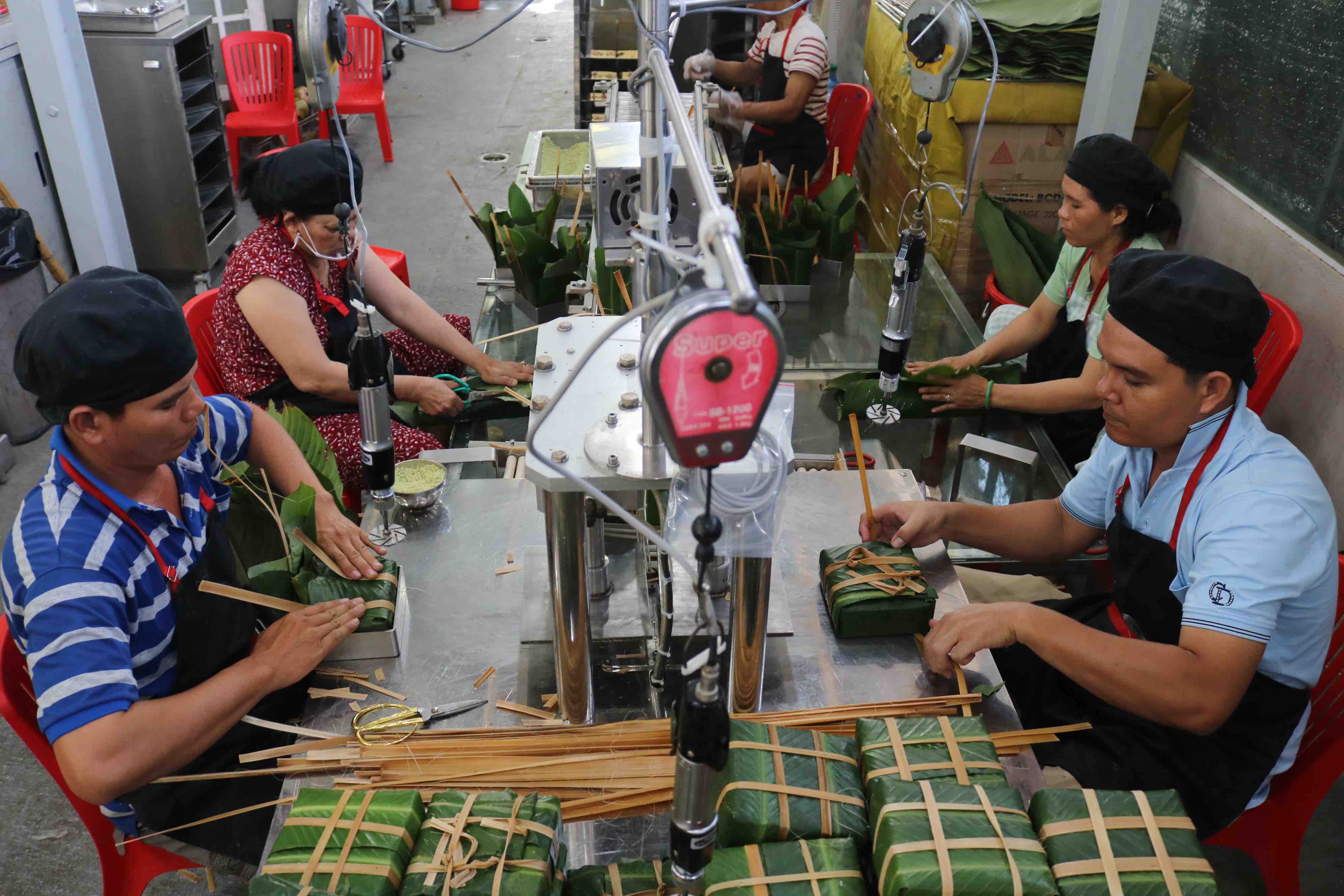Hoping to modernize the process of making banh chung (square glutinous rice cakes), a Saigonese businessman has spent billions of Vietnam dong creating the country’s first banh chung machine.
Banh chung is a type of Vietnamese tradittional savory dish made from glutinous sticky rice and filled with mung bean and pork.
The dish normally can be found at every home of Vietnamese people during Tet (Lunar New Year) Festival or other traditional holidays.
After a family tragedy threw him into a state of despair, Pham Khac Tuong, a Ho Chi Minh City resident, began making banh chung as a way to take his mind off his grief.
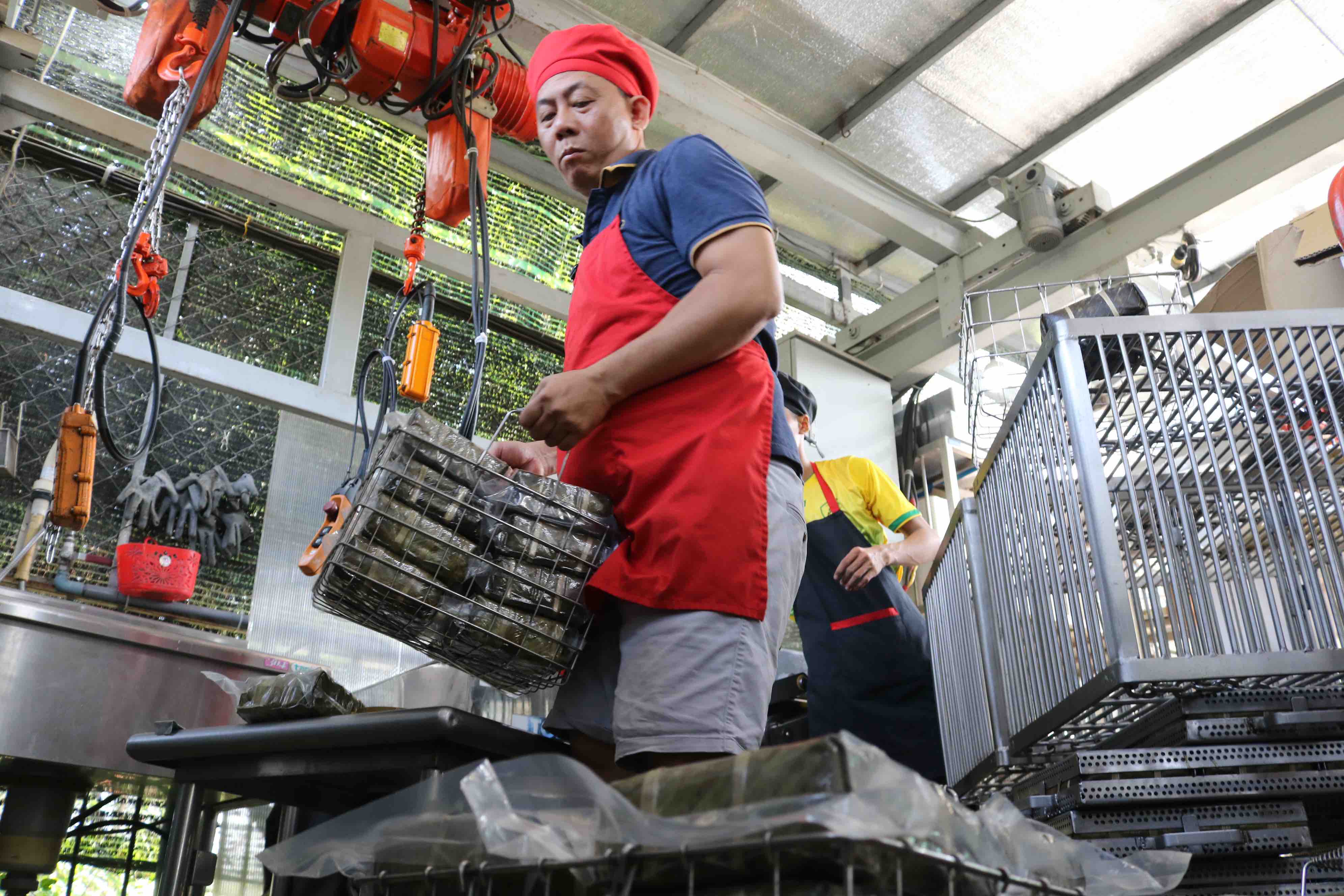 |
| Pham Khac Tuong puts the wrapped ‘banh chung’ into a pot to be boiled. Photo: Hoang An / Tuoi Tre |
At first, Tuong considered banh chung as merely a distraction, but over time he realized that manually wrapping each cake with dong leaves (phrynium leaves), takes a considerable amount of time and dexterity.
Hoping to ease the banh chung making process for his countrymen, Tuong spent three years and VND3 billion (US$130,000) developing several machines to automate banh chung making machine.
Tuong’s banh chung are only available during Tet holiday and other Vietnamese celebrations.
For the upcoming Hung Kings festival which falls on April 21, Tuong’s facility will produce about 400 banh chung. He hopes to expand his business in the near future.
Using Tuong’s machines, approximately 90 percent of the banh chung making process is automated, including marinating and cutting meat, steaming the beans, pressing the filling, and boiling the cake.
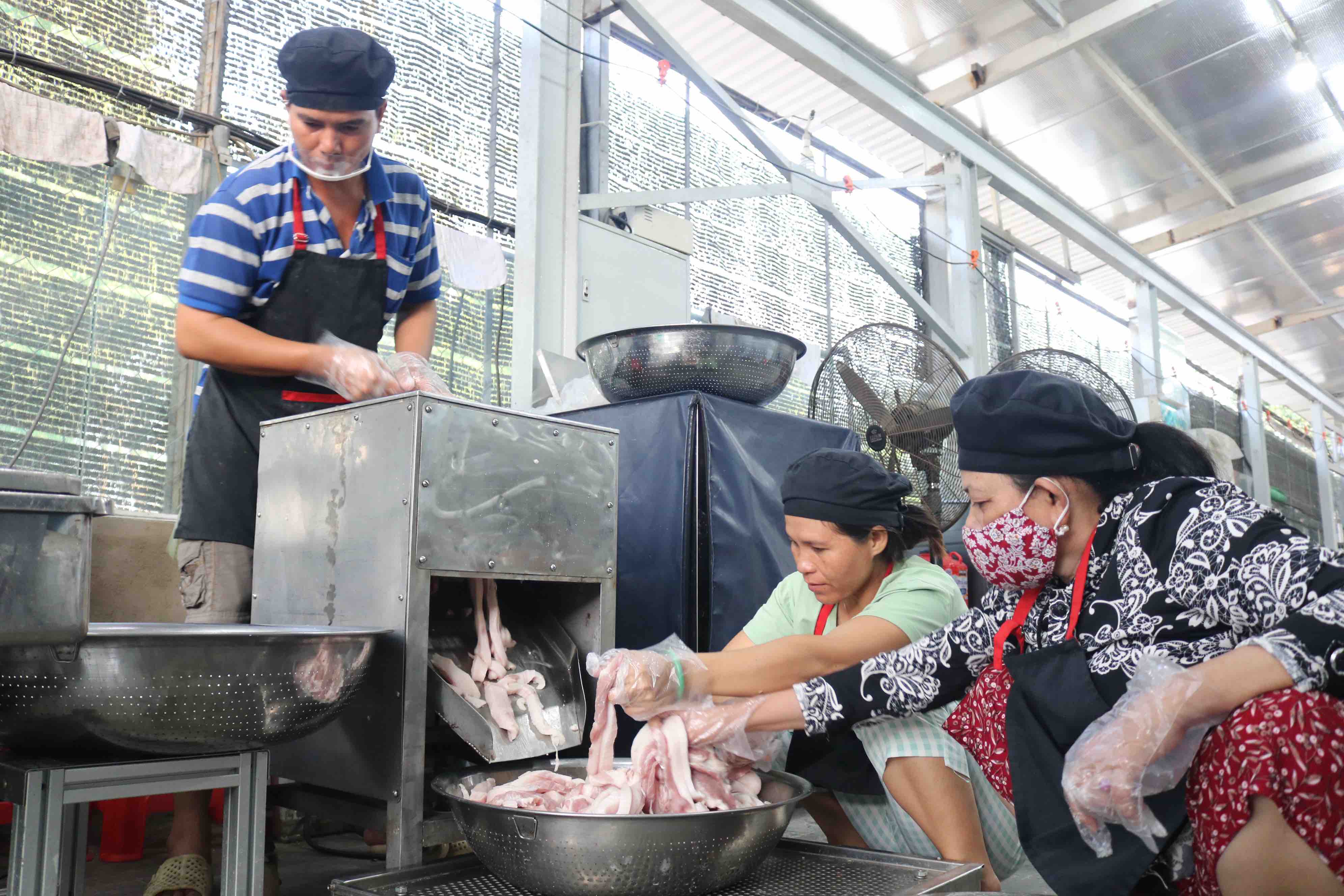 |
| Staffs at Pham Khac Tuong’s facility put the meat in the blender to cut it into small pieces. Photo: Hoang An / Tuoi Tre |
Still, despite the modernization of the process, Tuong’s machine-made banh chung retain the soul of the Vietnamese delicacy by only using traditional ingredients, such as sticky rice, dong leaves (phrynium leaves), galangal leaves, pork, mung bean, and pepper.
Currently, Tuong’s facility can produce between 2,500 and 3,000 banh chung per day.
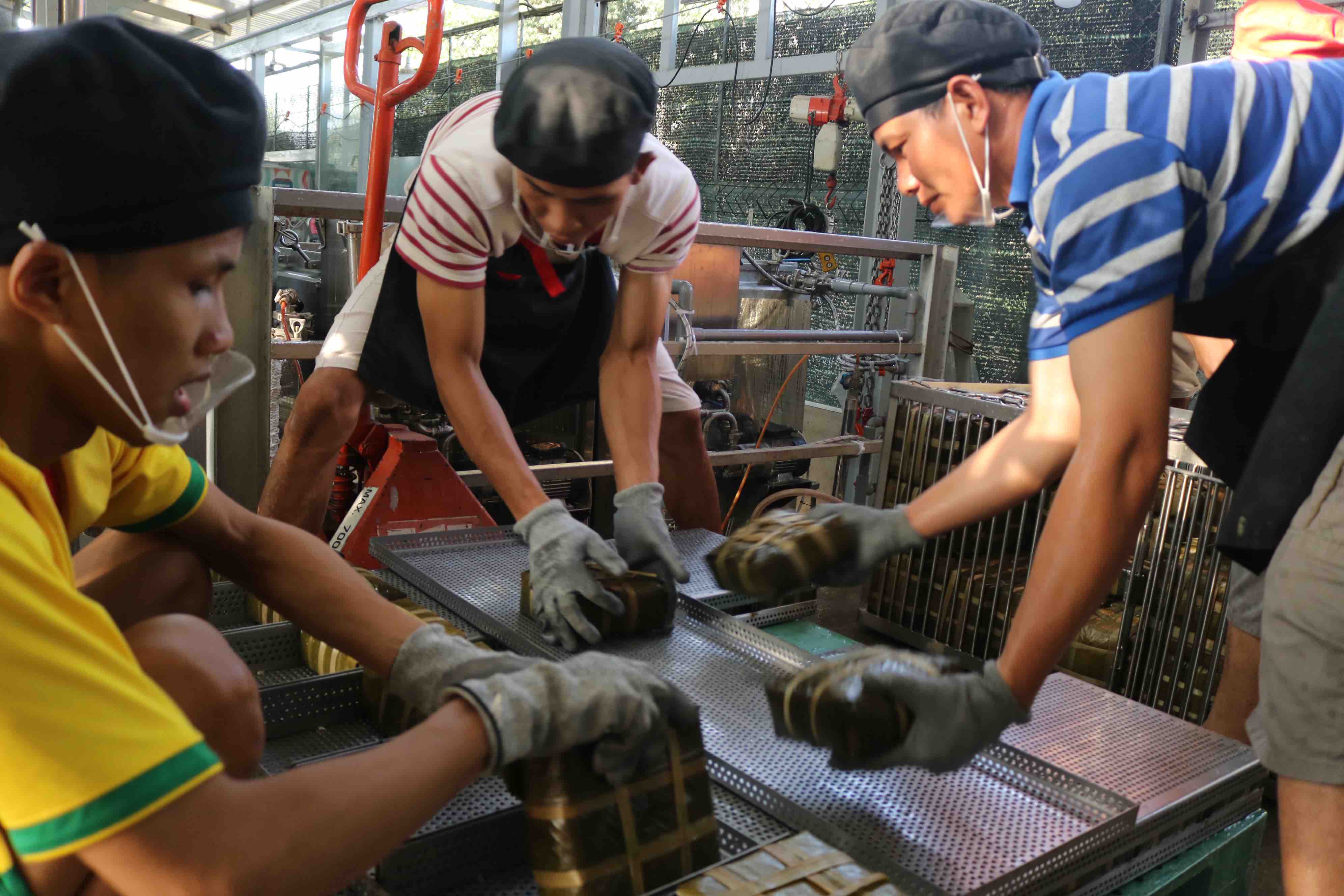 |
| Staff at Pham Khac Tuong’s facility arrange the finished banh chung at Thu Duc City. Photo: Hoang An / Tuoi Tre |
“It was quite difficult to research which machines I would need and how I could connect them to form a proper production line,” Tuong explained, adding that most of the parts he uses were imported from Germany.
A typical day on Tuong’s banh chung production line begins at 6:00 am when workers wash the meat and then load it into a machine for drying.
The meat is then placed into a grinder before an automatic mixer adds pepper.
Each cake contains about 400 grams of this meat-pepper mixture.
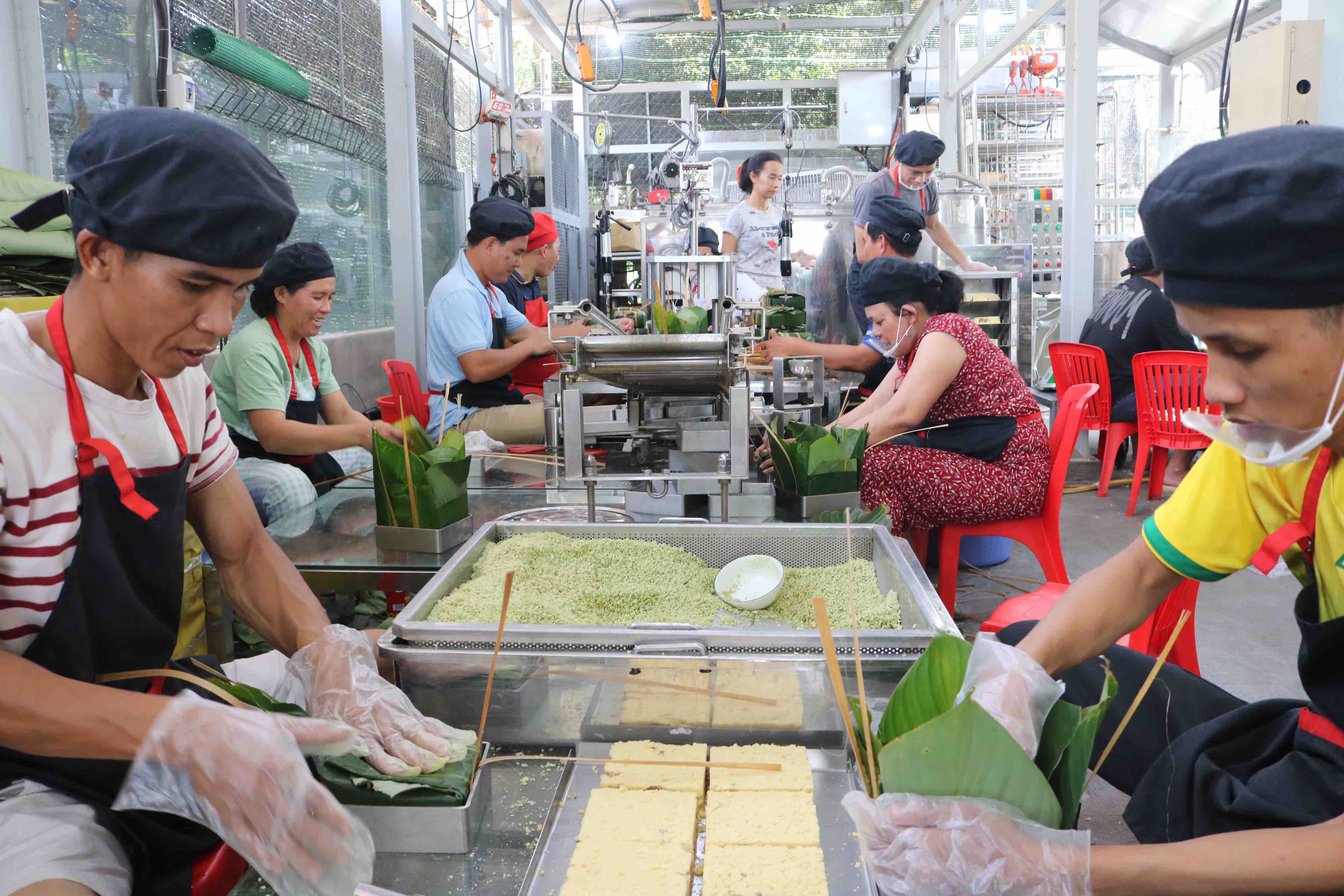 |
| In the photo, the staffs at Pham Khac Tuong’s facility wrap ‘banh chung’ with the help of the machine line at Thu Duc City. Photo: Hoang An / Tuoi Tre |
“A machine divides the filling for us which makes the wrapping process significantly easier. This helps ensure each cake has the correct amount of each ingredient,” Tuong said.
The machine Tuong uses to wrap the banh chung takes less than one minute, much quicker than it would be to hand wrap each cake.
Afterwards, the banh chung are boiled in batches of 360 pieces.
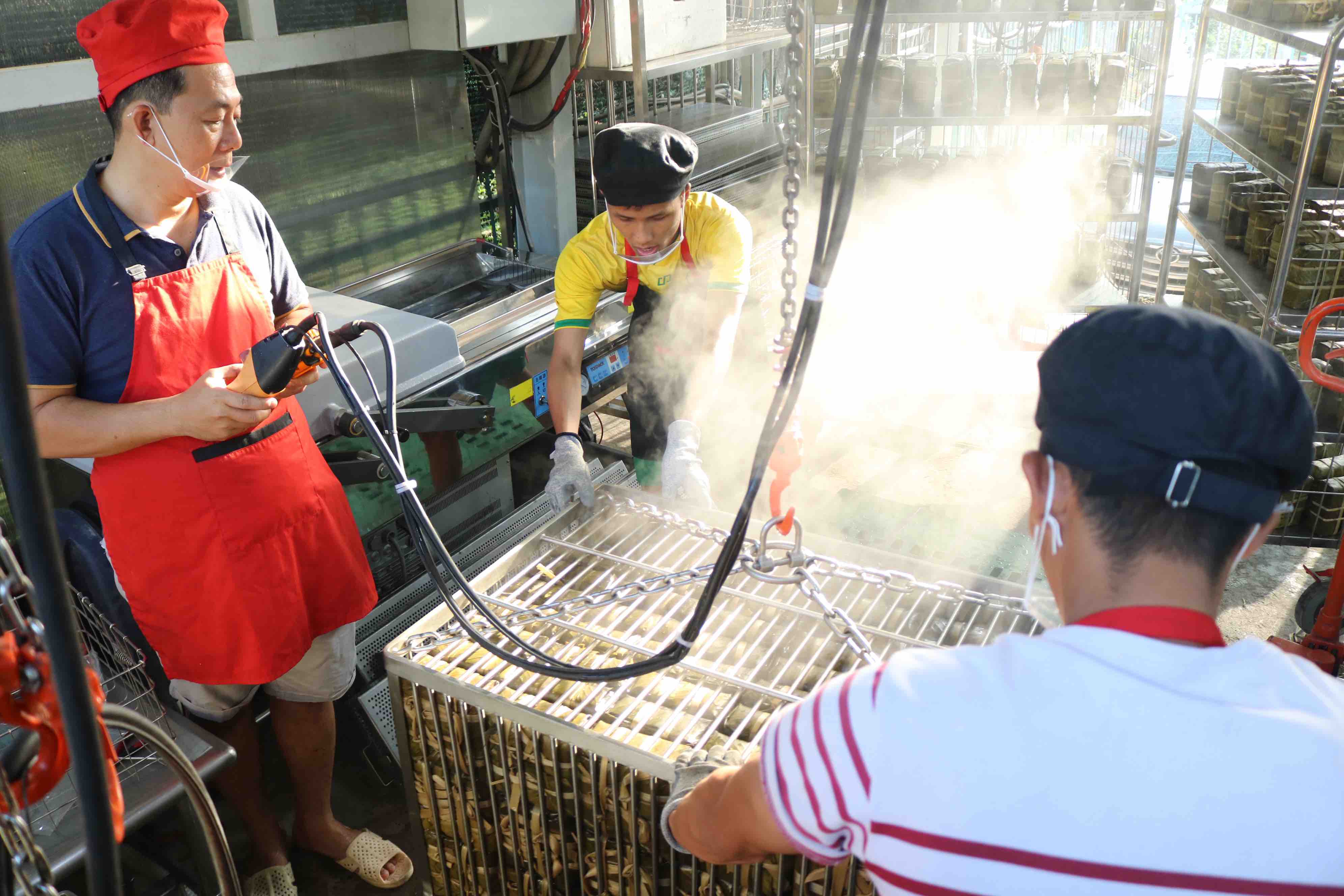 |
| Pham Khac Tuong waters the new batch to reduce the temperature at his facility in Thu Duc City. Photo: Hoang An / Tuoi Tre |
“Customers who try my banh chung are usually pretty impressed. They are made using famous sticky rice from the northern province of Dien Bien which adds a sweet aftertaste. We also wash the rice with galangal juice which brings out a wonderful fragrance,” Tuong said.
After nine hours of boiling, the banh chung are removed from the water and dried using industrial fans.
They are then vacuum sealed and stored outside for five to six days. Each weights about 1.6 kilograms and sells for VND180,000 ($7.79).
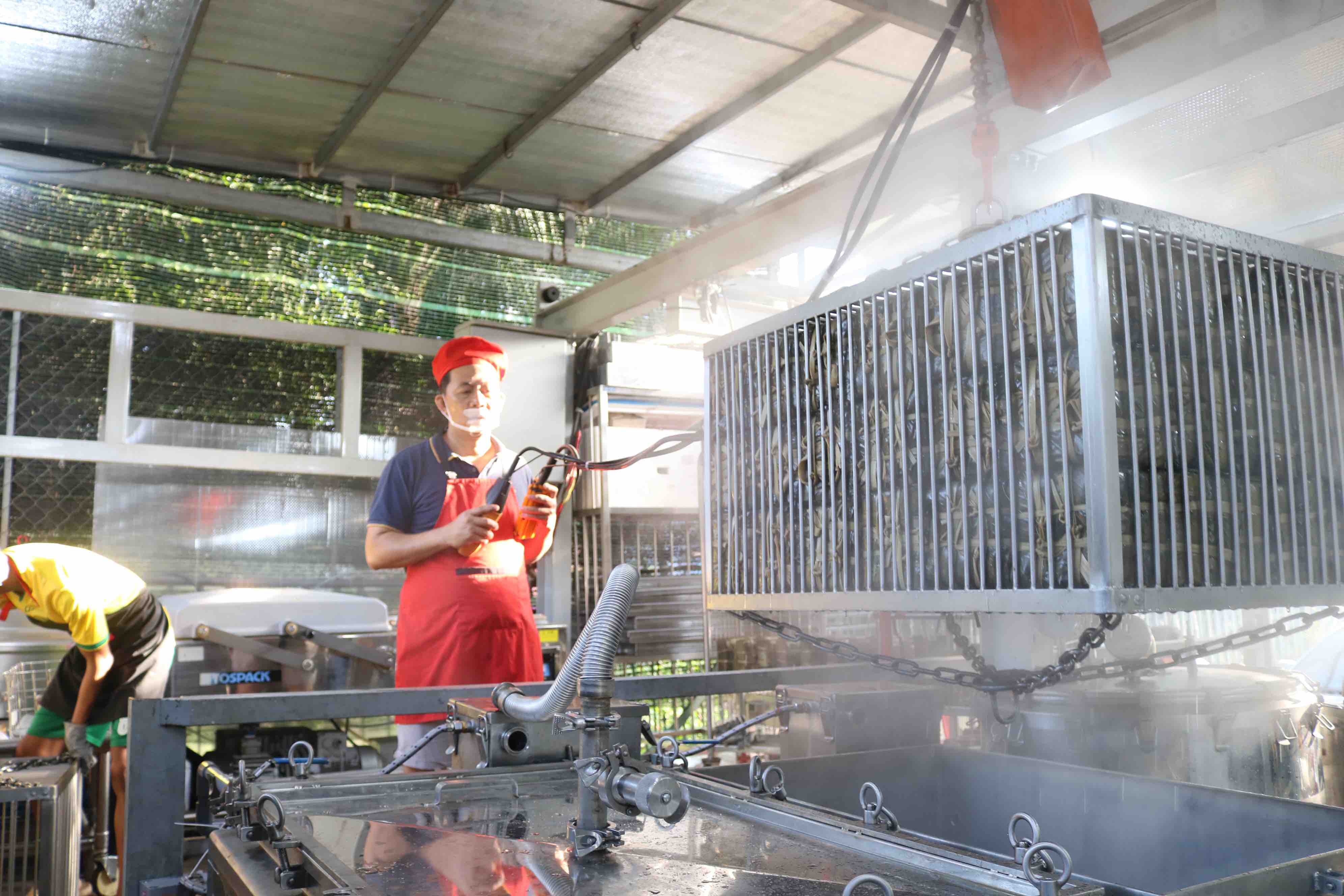 |
| Pham Khac Tuong controls the crane to take out the cooked banh chung. Photo: Hoang An / Tuoi Tre |
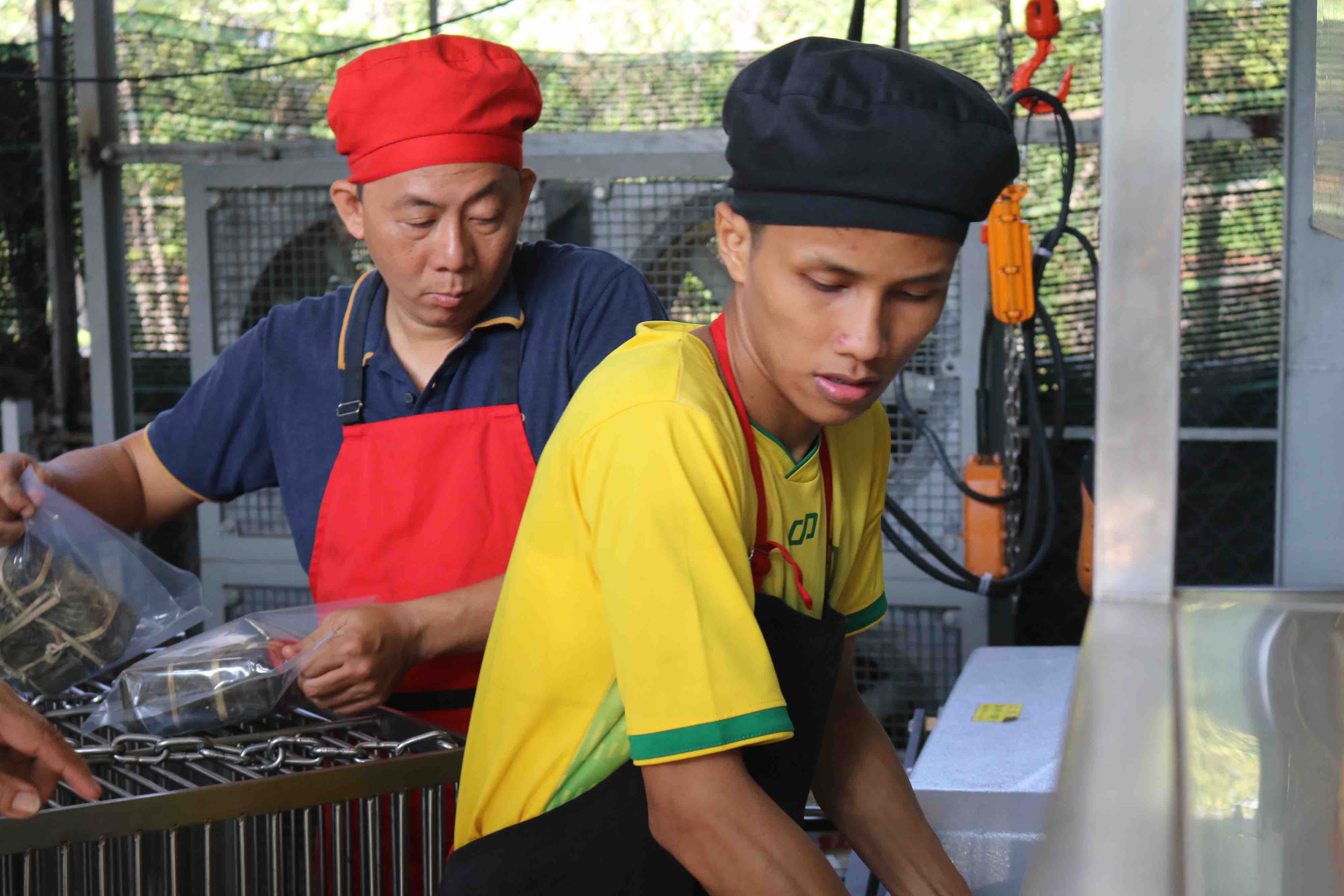 |
| Pham Khac Tuong (left) and his staff arrange banh chung in front of the fans to dry and vacuums to preserve the cake. Photo: Hoang An / Tuoi Tre |
Like us on Facebook or follow us on Twitter to get the latest news about Vietnam!



